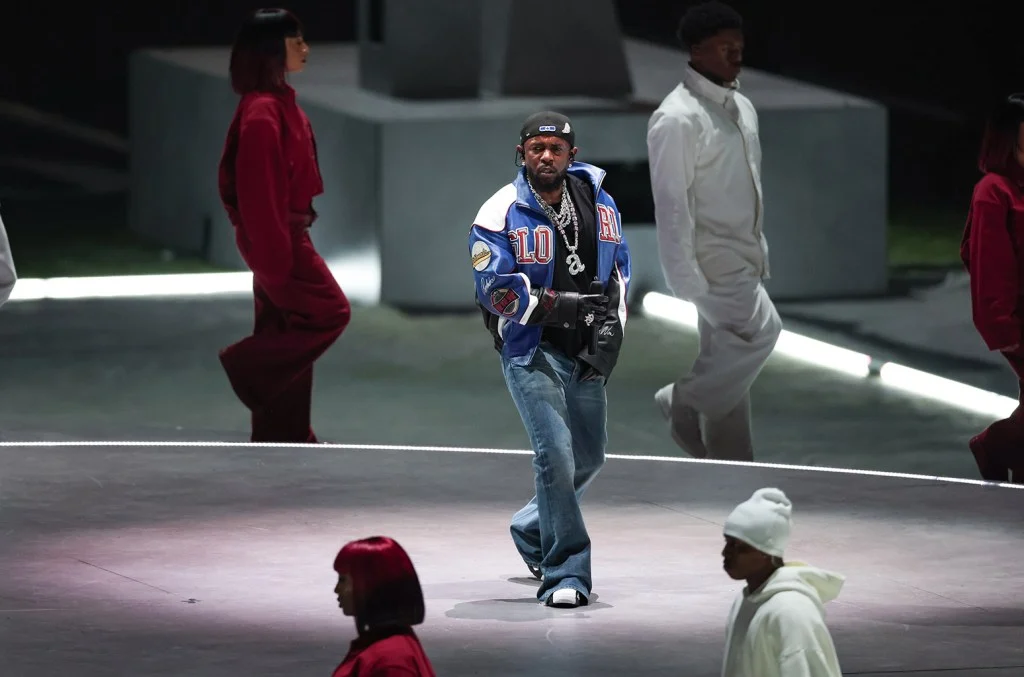Legal News
Page: 28
The legal battle over whether Ed Sheeran’s “Thinking Out Loud” infringed Marvin Gaye‘s “Let’s Get It On” has reached the U.S. Supreme Court more than a decade after Sheeran’s hit was released.
In a petition filed last week, a company that owns a stake in the rights to Gaye’s 1973 song urged the justices to overturn a November ruling by a lower appeals court, which said Sheeran had done nothing wrong and that the two tracks shared only “fundamental musical building blocks.”
The company, Structured Asset Sales (SAS), says that the ruling unfairly restricted its allegations to written sheet music rather than all elements included in Gaye’s iconic recorded version. That thorny issue, which has also cropped up in other major cases over “Blurred Lines” and “Stairway To Heaven” in recent years, must finally be resolved by the high court, the company says.
Trending on Billboard
“The rights of thousands of legacy musical composers and artists, of many of the most beloved and enduring pieces of popular music, are at the center of the controversy,” SAS’s lawyers write in the petition, filed with the high court Thursday (March 6).
Such an appeal, known as a petition for a writ of certiorari, faces long odds. The Supreme Court takes less than 2% of the roughly 7,000 cases it receives each year, hearing only the disputes it deems most important to the national legal landscape.
Sheeran has faced multiple lawsuits over “Thinking,” a 2014 track co-written with Amy Wadge that reached No. 2 on the Billboard Hot 100 and ultimately spent 58 weeks on the chart. He was first sued by the daughter of Ed Townsend, who co-wrote the famed 1973 tune with Gaye. That case ended in a high-profile jury verdict that cleared Sheeran of any wrongdoing.
Thursday’s petition came in a separate case filed by SAS, an entity owned by industry executive David Pullman that controls a different stake in Townsend’s copyrights to the legendary song. That suit was rejected in November by the federal Second Circuit appeals court, which said the lawsuit was essentially seeking “a monopoly over a combination of two fundamental musical building blocks.”
“The four-chord progression at issue—ubiquitous in pop music—even coupled with a syncopated harmonic rhythm, is too well-explored to meet the originality threshold that copyright law demands,” the appeals court wrote. “Overprotecting such basic elements would threaten to stifle creativity and undermine the purpose of copyright law.”
Appealing that ruling to the Supreme Court last week, attorneys for SAS argued the lower court had botched the case by relying only on the “deposit copy” — a bare-bones written version of music sent to the U.S. Copyright Office for many old songs. Doing so was not only legally erroneous but also out of step with reality, the company’s lawyers wrote.
“Nobody who understands the music industry would ever suggest that songwriters consult the deposit copies on file with the Copyright Office as part of their creative (or clearance) process,” SAS wrote to the justices. “To the extent they are aware of the music that preceded them, it is from hearing it on the radio, in movies, television and—for the last quarter century—the Internet.”
That ruling was even more legally problematic, SAS’s lawyers write, because it came in the wake of a Supreme Court decision last year that said courts should afford less deference to legal guidance from federal agencies. By siding with Sheeran — and an agency interpretation from the Copyright Office — SAS says the lower appeals court “openly defied this Court.”
Sheeran’s attorneys can file a response brief in the weeks ahead. The court will decide whether or not to hear the case at some point in the next several months.
LyricFind is suing Musixmatch over allegations that its rival struck an exclusive licensing deal with Warner Music Group (WMG) that’s “unprecedented in the music industry” and is aimed at securing an illegal monopoly for providing lyrics to streamers like Spotify.
In a complaint filed Wednesday (March 6) in San Francisco federal court, LyricFind accuses Musixmatch and private equity owner TPG Global of violating federal antitrust laws by signing the deal with Warner Chappell Music (WCM), the publishing division of WMG, claiming it was designed to crush competition.
“TPG’s and Musixmatch’s goal was simple: make sure that Spotify, and other [streamers], have no choice but to obtain [lyrics] from Musixmatch despite its higher fees — a plainly anticompetitive result,” the company’s attorneys write. “LyricFind brings this lawsuit to stop defendants’ unlawful conduct, which has eliminated competition and raised prices.”
Trending on Billboard
The three major music companies have typically licensed their vast catalogs of lyrics to companies like Musixmatch on a non-exclusive basis, LyricFind says, allowing rival companies to compete to offer the best lyric services to streamers. But Musixmatch’s new deal with Warner allegedly shuts out competitors from offering the music giant’s lyrics — an “unprecedented” approach.
“To compete effectively, LyricFind and Musixmatch must be able to provide Lyric Data Services for all major publishers’ song titles,” the company’s attorneys write. “Defendants’ scheme had the intended effect [and] the only remaining practical choice for [digital services providers] is to contract with Musixmatch, at whatever price Musixmatch demands.”
In a statement to Billboard, a spokesman for Musixmatch said: “It’s our policy not to discuss legal matters publicly. We believe these are meritless accusations and choose to concentrate on what matters most: our customers & partners.”
A spokesman for WMG, which was not named in the lawsuit nor accused of any wrongdoing, did not immediately return a request for comment.
In early 2024, LyricFind says it was “very far along in negotiations” to replace Musixmatch as the lyrics provider for Spotify, the world’s largest music streamer and “Musixmatch’s largest customer.” When TPG and Musixmatch learned of the talks, they allegedly became “desperate” and struck the licensing agreement with Warner in an effort to kill the deal.
The move worked, LyricFind’s attorneys say: After the Warner agreement was in place, Spotify said it “had no choice” but to break off the negotiations with the lyrics provider. Instead, the streamer re-upped its previous agreement with Musixmatch despite “having already negotiated a significantly better price and service with LyricFind.”
“LyricFind was robbed of an opportunity to partner with Spotify on a contract worth tens of millions of dollars to LyricFind, and that would have strengthened LyricFind’s competitive position in the rest of the market,” the company’s attorneys write in the lawsuit.
The Musixmatch-Warner deal is also scuttling other business for LyricFind, the lawsuit says, including prompting iHeartRadio to break off renewal talks “when it learned that LyricFind would no longer be able to service WCM’s catalog.” Instead, the radio giant signed with Musixmatch “at a price over five times higher.”
“Other DSPs that have already invested great sums to integrate LyricFind’s system will also be forced to switch to Musixmatch, and nobody else, at a significant cost, while paying Musixmatch’s monopoly fees,” the suit says. “LyricFind’s viability as a business is now in jeopardy, as it can no longer compete for DSPs’ business.”
In a statement announcing the case, LyricFind CEO Darryl Ballantyne said the company was “taking action now to protect every music streaming service’s right to partner with the lyric provider of their choice.”
“Musixmatch is now effectively the gatekeeper to any DSP that wants to have a complete lyric offering,” Ballantyne said. “There is simply no way around having to work with Musixmatch.”
Read the entire complaint here:
Jay-Z’s rape accuser says in court filings that she stands by her story, directly contradicting his recent lawsuit that claims she admitted to fabricating the allegations — prompting the star’s lawyers to offer testimony from private investigators and demand that the accuser sit for a deposition.
In Los Angeles court filings Monday (March 3), the unnamed Jane Doe stated that she had flatly refused to recant her story when approached last month by investigators for Jay-Z — an experience she said left her “intimidated and terrified.” She also denied that her attorney, Tony Buzbee, had pushed her to sue.
Those statements, which Doe made in a sworn affidavit, directly contradicted allegations leveled by Jay-Z (Shawn Carter) in a separate lawsuit filed earlier on Monday. In that case, he claimed Doe had “voluntarily admitted” directly to his team that her now-dropped lawsuit was premised on a false accusation.
“Although I ultimately chose not to pursue them, I stand by my claims in the New York action and believe that I had a meritorious claim against Jay-Z,” the woman wrote in Monday’s filing. “I ultimately decided to dismiss the [case] because I was frightened by the reaction of Jay-Z and his supporters, and the likelihood that I would have to be publicly named and subjected to public attacks.”
In the same sworn statement, the unnamed woman stressed that Buzbee had not sought her out, nor had he urged her to add Jay-Z to her allegations: “I told them that neither of those things ever happened, and I asked them to leave me alone.”
Monday’s statement from Doe quickly prompted a response from Jay-Z’s lawyers. In a flurry of new filings on Wednesday (March 5), they offered up sworn statements from the actual private investigators who allegedly talked to her, asking the judge for permission to add them to the case record.
In those statements, one of the investigators said, “Jane Doe stated to me that Mr. Carter did not sexually assault her.” At another point, the same investigator added: “Jane Doe stated ‘Buzbee brought Jay Z into it,’ and ‘he was the one that kind of pushed me towards going forward with him.’” Another investigator said Doe had told him that “lawyers at Mr. Buzbee’s law firm told her that, if she pursued Mr. Carter, she would get a payout.”
In the same filings, Jay-Z’s lawyers also made an alternative request: that the judge permit them to depose both the accuser and Buzbee under oath. “The new declaration only further reinforces the need for Jane Doe and Mr. Buzbee to sit for a deposition regarding their conversations, including her conversations with his colleagues who convinced Jane Doe to drop her lawsuit,” they wrote.
Depositions are not typically granted at the outset of such a case; instead, they are conducted during the later “discovery” phase as a case moves toward trial. But Jay-Z’s lawyers say Doe’s filing has opened the door to those issues and that the rapper is now “entitled to find out” what the woman knows.
In a detailed statement to Billboard on Wednesday, Buzbee strongly denied the various claims advanced by Jay-Z’s investigators in the new court filings. He said he believes they “flat out made all of this up” and that he “can’t wait to see what they have been paid and who is paying them.”
“Jane Doe’s case was signed up in October by another law firm to pursue allegations against Jay-Z and P. Diddy. Apparently it came in through Facebook to that firm’s page. After it was vetted it was sent to my firm weeks later,” Buzbee said. “The allegation that I sat with Jane Doe and suggested a suit against Jay-Z is not only a lie, it’s proveably and demonstrably false and is contrary to the documentation from referring counsel’s intake process and our own firm documents.”
The blockbuster case against Jay-Z, filed in December, claimed that he and Sean “Diddy” Combs drugged and raped a 13-year-old girl at an after-party following the 2000 MTV Video Music Awards. It represented a shocking expansion of the already-sprawling claims against Combs and came amid speculation that other stars might be implicated in Diddy’s alleged decades of abusive behavior.
Jay-Z forcefully denied the allegations, calling them a “blackmail attempt.” He accused Buzbee of trying to extort settlements from innocent celebrities by falsely tying them to Diddy and vowed to fight back and never pay his accuser.
Last month, Doe abruptly dropped the case — without explanation and without any kind of payment from Jay-Z. Two weeks later, Jay-Z sued both Doe and Buzbee for defamation, malicious prosecution and other wrongdoing, claiming they had carried out an “evil conspiracy” to extort a settlement from him by making the “false and malicious” rape allegations.
“Mr. Carter does not commence this action lightly,” his lawyers wrote in Monday’s lawsuit. “But the extortion and abuse of Mr. Carter by Doe and her lawyers must stop.”
The recent filing from Doe rebutting those allegations, also filed Monday, was lodged in a separate lawsuit in California in which Jay-Z is suing Buzbee for extortion and defamation over the same rape allegations. At a hearing in that case last week, a Los Angeles judge said he would likely dismiss the star’s extortion claims but likely allow the defamation claims against the lawyer to proceed.
Reggaetón icon Daddy Yankee filed a massive lawsuit on Tuesday (March 4) against his ex-wife, Mireddys González Castellanos, and her sister, Ayeicha González Castellanos, for financial mismanagement, defamation, irregularities and negligence in the management of his music companies El Cartel Records and Los Cangris.
The 23-page lawsuit, filed in the Tribunal de Primera Instancia in Carolina, Puerto Rico, amounts to $250 million and accuses the sisters of breach of fiduciary duties, breach of contract and more. According to the complaint, after Yankee regained control of the companies, his team discovered administrative and fiscal irregularities. One claim detailed in the lawsuit states that Yankee (Ramón Luis Ayala Rodríguez) found uncashed checks — some for royalty payments dating back to the early 2000s — that had expired because the defendants never deposited them.
“Due to this gross and stubborn negligence of the defendants’ administrative management, the plaintiffs lost thousands of dollars,” the lawsuit states.
Trending on Billboard
The lawsuit follows an injunction Yankee filed in December against his then-estranged wife, whom he officially divorced last month, claiming she had withdrawn $100 million from the companies’ bank accounts without authorization. According to that legal filing, the alleged theft of company funds occurred after Yankee had already revoked Mireddys and Ayeicha’s authority and “warned that they could not carry out any transactions on behalf of the companies.”
A few days later, both parties agreed that the Puerto Rican star would regain the presidency of El Cartel Records and Los Cangris, where his ex-wife allegedly served as CEO and her sister as secretary/treasurer.
Now, Yankee claims that after regaining control of the companies in December, his team discovered irregularities, including the “disappearance” of key documentation related to the companies’ finances and his successful La Última Vuelta World Tour. The lawsuit also alleges that between Dec. 26 and Dec. 30, just before the completion of the court-ordered administrative transition, the sisters “deleted or removed essential emails related to the operation of the companies and migrated the information to devices that have not been turned over or identified.”
Furthermore, Yankee alleges that the sisters’ “disorganized, unprofessional and irresponsible handling of matters related to Ayala Rodríguez’s career” and a “defamatory campaign promoted by the co-defendants and their agents and legal representatives with their endorsement” has caused him to lose income and damaged his “career, good name and personal prestige as one of the most important international Latin music figures.”
Billboard reached out to Mireddys González’s attorneys for comment but did not hear back at press time.
This is The Legal Beat, a weekly newsletter about music law from Billboard Pro, offering you a one-stop cheat sheet of big new cases, important rulings and all the fun stuff in between.
This week: Jay-Z goes on the legal offensive to clear his name of rape allegations, Drake’s lawyers cite Kendrick Lamar’s Super Bowl show in legal filings, Cardi B wins a re-payment plan from a bankrupt gossip blogger and much more.
THE BIG STORY: Jay-Z Strikes Back
When an unnamed woman accused Jay-Z in December of taking part in one of Sean “Diddy” Combs’ alleged sexual assaults, it was a shocking expansion of the already-sprawling claims against the hip-hop mogul — made all the more explosive by the claim that she was only 13 years old at the time.
But less than three months later, the case against Hov has already been dropped without explanation and without a settlement — and now the superstar is filing his own case aimed at fully clearing his name.
Trending on Billboard
In a lawsuit filed in Alabama federal court, he accused the Jane Doe plaintiff and her lawyer, Tony Buzbee, of carrying out an “evil conspiracy” to extort a settlement from him by leveling the “false and malicious” allegations of rape. Notably, the new lawsuit said the Doe accuser had “voluntarily admitted” directly to Jay-Z’s team that the star did not assault her and that Buzbee “pushed” her to make those allegations.
“Mr. Carter does not commence this action lightly,” his lawyers wrote. “But the extortion and abuse of Mr. Carter by Doe and her lawyers must stop.”
Go read the full story here, including access to the actual lawsuit Jay-Z’s attorneys filed in court.
Other top stories this week…
THAT DIDN’T TAKE LONG – Just two weeks after Kendrick Lamar’s blistering Super Bowl performance, Drake’s attorneys called out the halftime show in court documents filed in their defamation lawsuit against UMG over Lamar’s “Not Like Us.” The star’s lawyers cited the show as evidence of the ongoing harm that Drake is “continuing to suffer” while the case is delayed in court. And it paid off: Following Drake’s filing, the federal judge overseeing the case sided with the rapper and refused to let UMG postpone an initial hearing.
DEFAMATION DEBT – Gossip blogger Tasha K agreed in bankruptcy court to pay Cardi B more than $1 million in small installments over the next five years — a plan necessary to start paying down a $3.9 million defamation judgment Cardi won against her for making outlandish claims about drug use, STDs and prostitution. Under the terms of the deal, Tasha will still owe the rest of the damages award even after she finishes the repayment plan, and she is barred from “derogatory, disparaging, or defamatory statements” about the superstar while the plan is in effect.
LILES ABUSE LAWSUIT – Kevin Liles was hit with a lawsuit alleging the 300 Entertainment CEO sexually harassed and raped an unnamed executive assistant while serving as the general manager of Def Jam Recordings in the early 2000s. Liles immediately denied the “outrageous claims,” vowing to “fully clear my name” and file a defamation lawsuit against the accuser and her attorneys.
GRACELAND SCAMMER – A Missouri woman named Lisa Jeanine Findley pleaded guilty to a bizarre plot to defraud Elvis Presley’s family by trying to auction off his Graceland mansion. According to prosecutors, Findley falsely claimed that Presley’s daughter had pledged the home as collateral for a loan before her death; Findley then threatened to sell Graceland to the highest bidder if Presley’s family didn’t pay $2.85 million. Following her guilty plea, Findley is scheduled to be sentenced on June 18 and faces a maximum penalty of 20 years in prison.
DRAKE DROPS IHEART – Drake and iHeartMedia reached a settlement to end a legal action claiming iHeart received illegal payments from UMG to boost radio airplay for Kendrick Lamar’s “Not Like Us” — a preliminary action that Drake filed last fall in the lead up to his defamation lawsuit against UMG. In a statement to Billboard, the radio giant said it had agreed to provide Drake’s attorneys with documents showing that iHeart had done nothing wrong and that no payments had been made by either party.
ROCKY NOT CLEAR YET – Just over a week after A$AP Rocky was acquitted on criminal charges that he shot former friend A$AP Relli, a Los Angeles judge lifted a hold on Relli’s civil lawsuit against Rocky. As reported by Rolling Stone, Rocky’s lawyer argued at a hearing that “there’s no longer a basis” for the case following the not guilty verdict, but Relli’s lawyer vowed to proceed: “The standard in a criminal case is much higher than … in a civil matter. We still believe that our claims have merit, and we intend on fully litigating them.”
THUG TOURING SETTLEMENT – Young Thug and concert giant AEG quietly settled a multi-million dollar legal battle over a touring partnership gone sour. The lawsuit, first filed in 2020 but delayed for years by Thug’s high-profile criminal case, claimed that the star owed more than $5 million under a 2017 touring agreement — and that he was obligated to hand over some of his music rights to pay down that debt. The settlement came as Thug is gearing up to start performing in concert again for the first time since he took a plea deal to end the years-long criminal drama in Atlanta.
A federal judge is refusing to allow Universal Music Group (UMG) to delay the start of Drake’s defamation lawsuit over Kendrick Lamar’s “Not Like Us” — a decision that came after Drake’s lawyers filed court documents complaining about Lamar’s Super Bowl halftime show.
In a decision issued Tuesday (Mar. 4), Judge Jeannette Vargas denied UMG’s bid to postpone an initial hearing set for next month. The judge said that if UMG wants to push back the case — which claims “Not Like Us” defamed Drake by calling him a pedophile — it can argue for that request at the April hearing.
The procedural ruling came after Drake’s attorneys warned that further delays to the lawsuit would be unfair to their client, who they say is facing ongoing harm as the case works through the courts. In doing so, they cited one eye-catching piece of evidence: Lamar’s Super Bowl show.
Trending on Billboard
“Delaying discovery would unfairly prejudice plaintiff, who is continuing to suffer the consequences of UMG’s defamatory campaign,” Drake’s lawyers wrote. “At the same time UMG has been delaying here, UMG launched new campaigns to further spread the defamatory content, including at the 2025 Super Bowl halftime show, which had over 133.5 million viewers.”
Drake’s motion, filed last week, was the lawsuit’s first reference to the halftime show, in which Lamar avoided saying the word “pedophile” but otherwise directly attacked his rival. Since the Super Bowl, industry watchers have speculated over whether Lamar’s performance might spark additional legal claims or be used as fresh legal ammo by Drake’s legal team.
Lamar released “Not Like Us” last May amid a high-profile beef with Drake that saw the two stars exchange stinging diss tracks. The song, a knock-out punch that blasted Drake as a “certified pedophile” over an infectious beat, eventually became a chart-topping hit in its own right.
In January, Drake sued UMG over “Not Like Us,” claiming the label had defamed him by boosting the track’s popularity. The lawsuit, which doesn’t name Lamar himself as a defendant, claims that UMG “waged a campaign” against its own artist to spread a “malicious narrative” about pedophilia that it knew to be false.
UMG has strongly denied the lawsuit’s allegations, saying that it would be “illogical” for the company to conspire against one of its own artists in whom it had made a “massive” investment.
“We have not and do not engage in defamation—against any individual,” UMG said in its statement. “At the same time, we will vigorously defend this litigation to protect our people and our reputation, as well as any artist who might directly or indirectly become a frivolous litigation target for having done nothing more that write a song.”
In the lead up the Super Bowl, it was unclear if Lamar would play the song under a cloud of looming litigation. But when he took the stage on Feb. 9, he mocked the lawsuit and rapped the song’s key lyrical insults, including the line, “say, Drake, I hear you like ’em young.”
In a motion last month, UMG’s attorneys asked Judge Vargas to postpone the April hearing, arguing that the company would soon move to dismiss the case and that any exchanges of evidence (known as discovery) would be “premature” if the case were going to be tossed out entirely.
Drake’s lawyers quickly responded, claiming UMG was unfairly trying to halt the case without actually asking the judge: “UMG has neither moved to dismiss nor moved for a stay of discovery, and its attempt to achieve the latter by delaying the former are inappropriate.”
On Tuesday, Judge Vargas sided with Drake’s team, saying that it is “not the practice of this Court to routinely stay discovery pending the outcome of a motion to dismiss.” She said that UMG can seek to postpone discovery at the hearing, which is now set for April 2.
Young Thug and concert giant AEG have quietly settled their multi-million dollar legal battle over a touring partnership gone sour.
The lawsuit, first filed in 2020 but delayed for years by Thug’s high-profile criminal case, claimed that the star owed more than $5 million under a 2017 touring agreement — and that he was obligated to hand over some of his music rights to pay down that debt.
But in a motion filed in federal court on Feb. 14, attorneys for both sides said they had “entered into a settlement” to resolve the dispute. Terms of the agreement were not disclosed in court filings, and neither side immediately returned requests for comment. The deal was later finalized by a judge on Feb. 18.
The settlement came as Thug is gearing up to start performing in concert again for the first time since he took a plea deal to end the years-long criminal drama in Atlanta. That agreement imposed strict conditions, but allowed Thug to avoid prison time and resume his music career.
Trending on Billboard
AEG sued Thug in December 2020 over allegations that he had breached the earlier touring agreement, which gave the company the exclusive right to promote his concerts. AEG alleged that Thug had “immediately failed and refused to honor” the deal after it had been signed, including by performing shows without the promoter’s involvement and pocketing the proceeds.
Under the terms of the deal, AEG claimed Thug was paid a $5.3 million advance – a sum the company claimed was never paid back. More significantly, AEG claimed that debt was secured with Thug’s copyrights to his songs as collateral – and that AEG can now claim an interest in the revenue generated by such intellectual property.
In more recent court filings, AEG claimed Thug had sold off more than 400 copyrighted songs for more than $16 million to an unknown third-party in 2021, and suggested that such a transfer mid-lawsuit might have been fraudulent.
The case was put on indefinite hold in May 2022, when the rapper was charged in a sweeping racketeering indictment that claimed his YSL group was a violent gang that had wrought “havoc” on Atlanta. Following the longest-running trial in Georgia history and a two-year stint in jail, Thug pleaded guilty last month and was sentenced to serve only probation.
Shortly after Thug struck that deal, attorneys for AEG pushed to restart the civil lawsuit, saying it was no longer “hampered” by the criminal case. But little additional litigation took place before the settlement was reached.
Jay-Z is filing a lawsuit against the unnamed woman who accused him of rape last year, claiming she has now directly admitted that she fabricated those explosive allegations.
The new case, filed weeks after the lawsuit against Jay-Z (Shawn Carter) was abruptly dropped last month, alleges that the Jane Doe accuser and her attorney, Tony Buzbee, carried out an “evil conspiracy” to extort a settlement from the superstar by making “false and malicious” allegations against him.
Notably, the new lawsuit says the Doe accuser has now “voluntarily admitted” directly to Jay-Z’s team that the star did not assault her and that Buzbee “pushed” her to make those allegations.
“Mr. Carter does not commence this action lightly,” his lawyers write in a complaint filed Monday (March 3) in Alabama federal court. “But the extortion and abuse of Mr. Carter by Doe and her lawyers must stop.”
In a statement to Billboard, Buzbee sharply denied the allegations: “This case is baloney and has no legal merit. Shawn Carter’s investigators have repeatedly harassed, threatened and harangued this poor woman for weeks trying to intimidate her and make her recant her story. She won’t. Instead she has stated repeatedly she stands by her claims. These same group of investigators have been caught on tape offering to pay people to sue me and my firm. This is just another attempt to intimidate and bully this poor woman that we will deal with in due course.”
The blockbuster case against Jay-Z, filed in December, claimed that he and Sean “Diddy” Combs drugged and raped a 13-year-old girl at an after-party following the 2000 MTV Video Music Awards. It represented a shocking expansion of the already-sprawling claims against Combs and came amid speculation that other stars might be implicated in Diddy’s alleged decades of abusive behavior.
Jay-Z forcefully denied the allegations, calling them a “blackmail attempt.” He accused Buzbee of trying to extort settlements from innocent celebrities by falsely tying them to Diddy and vowed to fight back and never pay his accuser.
Last month, Doe abruptly dropped the case — without explanation and without any kind of payment from Jay-Z. Though he celebrated it as a “victory,” the star hinted he would seek to further clear his name: “When they quickly realize that the money grab is going to fail, they get to walk away with no repercussions. The system has failed.”
In filing Monday’s lawsuit, attorneys for the star are essentially seeking to impose those kinds of repercussions. They accuse Doe and Buzbee of counts of malicious prosecution, abuse of process and civil conspiracy, claiming they teamed up to abuse the court system to “assassinate the impeccable and lifetime-earned character of Shawn Corey Carter” in an effort to score a payday.
“Defendants devised and executed their plan to accuse Mr. Carter of sexual assault and used national news and media outlets to disseminate the fabricated accusations to millions despite the falsity of the accusation,” his lawyers write. “Defendants’ actions were willful and purposeful in order to maximize the reputational harm to Mr. Carter and induce Mr. Carter to pay them.”
The new lawsuit is most notable in that it claims the accuser herself has admitted the allegations against Jay-Z are false. A headline-grabbing interview with NBC News exposed serious inconsistencies in her story, and Jay-Z’s team repeatedly argued the lawsuit was frivolous. But in Monday’s complaint, his attorneys now say Doe herself has confirmed to them that the bombshell charge was not true.
“Doe has now voluntarily admitted directly to representatives of Mr. Carter that the story brought before the world in court and on global television was just that: a false, malicious story,” the lawsuit says. “She has admitted that Mr. Carter did not assault her; and that indeed it was Buzbee himself … who pushed her to go forward with the false narrative of the assault by Mr. Carter in order to leverage a maximum payday.”
It’s unclear from the complaint when exactly Doe made such admissions to Jay-Z’s representatives or in what context. Reps for his attorneys did not immediately return a request for comment.
In addition to focusing on the old lawsuit, Jay-Z’s lawyers also say the star is now facing new “extortionate threats” from Buzbee. They claim Doe’s attorneys warned them last week that if they reveal Doe’s statements admitting her story was false, they’ll issue a press release claiming she’s been “harassed” by Jay-Z’s team and that she “dropped the lawsuit only because she was afraid for her life.”
“Thus, the threats of extortion and further defamation continue to this day, necessitating that Mr. Carter take action to prevent unscrupulous actors from further preying on him,” his attorneys write.
The new case isn’t the first time Jay-Z has gone on the legal counteroffensive. Weeks before the headline-grabbing rape case was filed against him in December, attorneys for the star secretly filed a preemptive lawsuit under a John Doe pseudonym accusing Buzbee of extortion and defamation. Jay-Z’s role as the mystery plaintiff in that case was later revealed after Doe filed her rape lawsuit.
At a hearing in that case last week, a Los Angeles judge said he would likely dismiss the star’s extortion claims against Buzbee but that he would likely allow the defamation claims against the lawyer to proceed toward trial.
Drake has reached a settlement with Texas-based iHeartMedia in his ongoing legal dispute over Kendrick Lamar’s diss track “Not Like Us,” according to court records.
In November, Drake filed a legal petition in Bexar County, Texas, where San Antonio is located, alleging that iHeartMedia had received illegal payments from Universal Music Group to boost radio airplay for “Not Like Us.” UMG is the parent record label for both Drake and Lamar.
The petition, a precursor to a potential lawsuit, had sought depositions from corporate representatives of both companies.
Trending on Billboard
In a court document filed Thursday, attorneys for Drake said the rapper and iHeartMedia had “reached an amicable resolution of the dispute” but did not offer any other information.
“We are pleased that the parties were able to reach a settlement satisfactory to both sides, and have no further comment on this matter,” Drake’s legal team said in a statement.
In an email Friday, iHeartMedia declined to comment on the settlement.
The claims against UMG remain active, and a hearing on a motion by UMG’s lawyers to dismiss the petition was scheduled to be held Wednesday in a San Antonio courtroom.
Drake has alleged UMG engaged in “irregular and inappropriate business practices” to get radio airplay for “Not Like Us.” The petition also alleges that UMG knew “the song itself, as well as its accompanying album art and music video, attacked the character of another one of UMG’s most prominent artists, Drake, by falsely accusing him of being a sex offender, engaging in pedophilic acts, harboring sex offenders, and committing other criminal sexual acts.”
An email to a UMG representative seeking comment was not immediately answered.
In January, Drake filed a defamation lawsuit in federal court in New York City against UMG over what he alleges are false allegations of pedophilia made in “Not Like Us.” Lamar is not named in the lawsuit.
The feud between Drake, a 38-year-old Canadian rapper and singer and five-time Grammy winner, and Lamar, a 37-year-old Pulitzer Prize winner who headlined the Super Bowl halftime show on Feb. 9, is among the biggest in hip-hop in recent years.
The Federal Communications Commission sent a letter Monday to iHeartMedia’s CEO and chairman, Robert Pittman, saying the commission is looking into whether the audio company is forcing musicians to perform at its May country music festival in Austin for reduced pay in exchange for favorable airplay of their songs on iHeart radio stations.
“We look forward to demonstrating to the Commission how performing at the iHeartCountry Festival – or declining to do so – has no bearing on our stations’ airplay,” iHeart Media said in a statement. “We do not make any overt or covert agreements about airplay with artists performing at our events.”
This article was originally published by The Associated Press.
Former Bad Boy Entertainment president Kirk Burrowes has sued Sean “Diddy” Combs’ mother, Janice Small (a.k.a. Janice Combs), for allegedly coordinating with her famous son and other co-conspirators to forcefully strip him of his alleged ownership stake in the iconic hip-hop label.
Per the complaint — filed by attorney Tyrone Blackburn on Wednesday (Feb. 26) in the Southern District of New York — Burrowes claims that alongside her son, then-Bad Boy Entertainment attorney Kenneth Meiselas and other unknown co-conspirators, Smalls illegally seized his alleged 25% financial stake in Bad Boy and his 15% share of the label’s annual earnings through “intimidation, violence, fraudulent, misrepresentation and financial concealment.”
The complaint references a specific incident in May 1996 during which he claims Combs stormed into his office and proceeded to threaten him while wielding a baseball bat. Fearing for his safety, Burrowes — who claims to have co-founded the label — claims he signed a contract under duress without seeking any legal counsel, effectively conveying what he claims was his 25% interest in Bad Boy to Combs.
Burrowes, who says he served as Bad Boy’s COO/GM at the time of the 1996 incident (he was promoted to president the following year) and was “instrumental in shaping the company’s success,” alleges that losing out on his claimed 25% ownership stake and Bad Boy stock options caused him “significant financial compensation and employment benefits” along with “irreparable personal, psychological and professional harm.”
“Smalls carefully maintained a facade of integrity, portraying herself as an innocent bystander while orchestrating plaintiff’s financial and professional downfall behind the scenes,” the complaint reads.
The lawsuit further claims that Smalls requested Burrowes’ counsel as recently as 2021 on a documentary about the history of Bad Boy, but that she ultimately reneged on their compensation agreement.
Burrowes previously filed suit against Combs over the alleged 1996 incident in 2003, but that earlier complaint was eventually dismissed in 2004 by a judge in the U.S. District Court for the Southern District of New York. (Combs is currently behind bars awaiting trial on sex trafficking and racketeering charges in a wide-ranging criminal case.)
Burrowes is seeking the return of his alleged 25% Bad Boy stake or compensatory damages matching the value of that stake, as well as an audit of Bad Boy’s earnings since the company’s origination.
Last April, Burrowes’ attorney Blackburn was referred to the grievance committee for New York’s federal court district by Judge Denise Cote for his alleged history of frivolous lawsuits. The judge cited his conduct in five different cases and claimed his filings featured “glaring deficiencies.” Two months prior, Blackburn had filed a sprawling lawsuit against Combs on behalf of producer Rodney “Lil Rod” Jones Jr., who accused the mogul of sexual assault, sex trafficking and various other forms of misconduct.
Billboard reached out to Combs Global in an effort to reach a representative for Smalls but did not hear back by press time.

 State Champ Radio
State Champ Radio 









